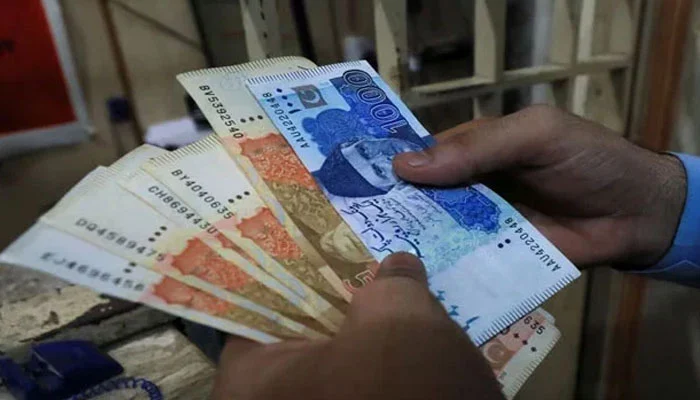An elderly man found lying unconscious on Khushab Road in Sargodha district, Punjab, was discovered to be carrying a substantial amount of money and other personal items. The Rescue 1122 team, which responded to an anonymous call about the man, found him with Rs534,000 in cash and a passport indicating frequent travels to Saudi Arabia.
The discovery was made when the rescue team arrived at the scene and provided medical assistance to the elderly man. District Emergency Officer Mazhar Shah informed Geo News that local residents had reported that the man had been begging in the same area. After receiving medical care and being discharged from the hospital, the elderly man was able to retrieve his cash and personal belongings.
The incident has raised concerns about the exploitation of Umrah visas for begging purposes. In September of the previous year, it was reported that Pakistani nationals were being trafficked abroad under the pretext of performing Umrah but were instead involved in begging activities. The Ministry of Overseas Pakistanis and Human Resource Development revealed to the Senate Committee on Overseas Pakistanis that a significant number of beggars traveling abroad were exploiting human trafficking channels.
The secretary of the Ministry of Overseas Pakistanis provided alarming details to the Senate panel, stating that approximately 90% of beggars arrested in foreign countries were Pakistani. He also reported that both Iraqi and Saudi authorities had indicated that their jails were overcrowded due to these arrests. Notably, many of those apprehended in Masjid Al Haram in Saudi Arabia were involved in pickpocketing and had exploited their Umrah visas to engage in begging.
The case of the elderly man in Sargodha highlights the broader issue of visa misuse and human trafficking. The exploitation of Umrah visas for illegal activities not only tarnishes the reputation of Pakistani travelers but also puts additional strain on international relations and local resources in the host countries.
The situation underscores the need for stricter regulations and better monitoring of visa issuance and usage. Authorities in Pakistan and abroad are called to collaborate more effectively to prevent such abuses and ensure that visas are used for their intended purposes. As the case unfolds, it is crucial for both Pakistani and international agencies to address these challenges and work towards finding long-term solutions to prevent further misuse of visas.
This incident serves as a stark reminder of the complexities involved in managing international travel and the need for vigilance to combat human trafficking and exploitation. The authorities must take decisive action to address these issues and safeguard the integrity of travel and immigration systems.



